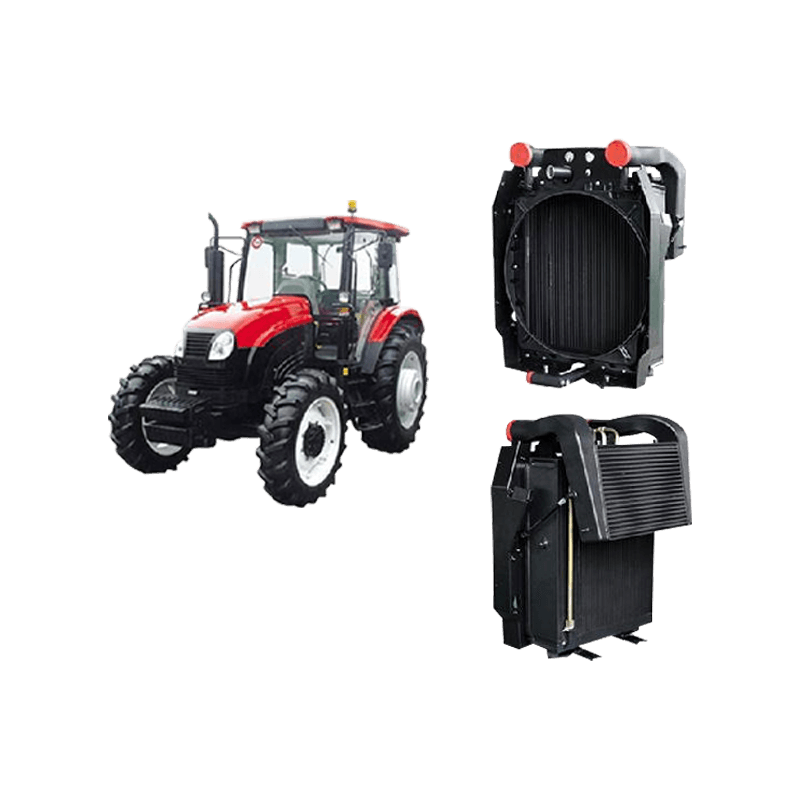 +86-13812067828
+86-13812067828
In the modern agricultural landscape, the demand for more efficient and eco-friendly machinery is rising. One of the often-overlooked components that play a significant role in improving both energy efficiency and reducing the environmental footprint of agricultural machinery is the fin-type agricultural machinery heat exchanger. These devices, designed to dissipate heat generated by engines and hydraulic systems, can have a profound effect on fuel consumption, greenhouse gas emissions, and the overall sustainability of farming operations.
The core benefit of a fin-type agricultural machinery heat exchanger lies in its ability to keep machinery at an optimal temperature, preventing overheating and ensuring the engine operates within its designed parameters. When an engine or hydraulic system overheats, it tends to burn more fuel in an attempt to maintain power output. By effectively managing heat through a robust fin design, these heat exchangers help keep the engine cooler, resulting in more efficient fuel use and reduced operational costs. This efficiency directly correlates to lower fuel consumption, making it a win for both the farmer’s bottom line and the environment.
Beyond just fuel efficiency, the impact of fin-type agricultural machinery heat exchangers on emissions is also significant. Engines that run at high temperatures tend to produce more pollutants, especially nitrogen oxides (NOx), carbon dioxide (CO2), and particulate matter. By reducing the operating temperature of the engine, these heat exchangers help lower the production of such emissions, thus contributing to cleaner air. This not only complies with increasingly strict environmental regulations but also aligns with the growing focus on sustainable agricultural practices.

The benefits of these heat exchangers extend beyond their direct impact on fuel efficiency and emissions. By preventing engine overheating, fin-type agricultural machinery heat exchangers help to extend the lifespan of the engine and related components. With less thermal stress, engines and hydraulic systems are less prone to wear and tear, which in turn reduces the frequency of repairs and replacement parts. Fewer breakdowns mean less downtime, which keeps machinery running longer without the need for extensive repairs. This further translates to reduced waste and fewer resources used in manufacturing replacement parts, creating a more sustainable operation overall.
Moreover, fin-type agricultural machinery heat exchangers offer a cost-effective solution for farmers seeking to lower their overall operational expenses. The combination of increased fuel efficiency and reduced maintenance costs makes these heat exchangers an attractive investment. Over time, the savings generated through fuel conservation and longer machine life can offset the initial cost of installation, delivering a strong return on investment. Given the importance of controlling operational costs in agriculture, this makes the technology even more valuable to farm operators looking for ways to enhance profitability while meeting sustainability goals.
As the agricultural industry continues to evolve, technology like the fin-type agricultural machinery heat exchanger is becoming increasingly indispensable. Farmers around the world are being called to adapt to both economic pressures and environmental standards, and solutions that improve machinery performance while reducing ecological impact are in high demand. This type of heat exchanger, which offers both energy efficiency and environmental benefits, is part of the broader trend toward smarter, more sustainable farming practices. By integrating these advanced cooling technologies into their machines, agricultural operators can continue to meet the growing demand for more efficient and environmentally-friendly food production.
In conclusion, the role of the fin-type agricultural machinery heat exchanger in improving energy efficiency and reducing the environmental footprint of agricultural machinery is undeniable. It helps to minimize fuel consumption, lower emissions, and extend the lifespan of critical engine components, providing significant long-term benefits. For farmers looking to optimize their operations, reduce costs, and comply with environmental regulations, investing in these heat exchangers is a smart and sustainable choice that pays dividends for years to come.